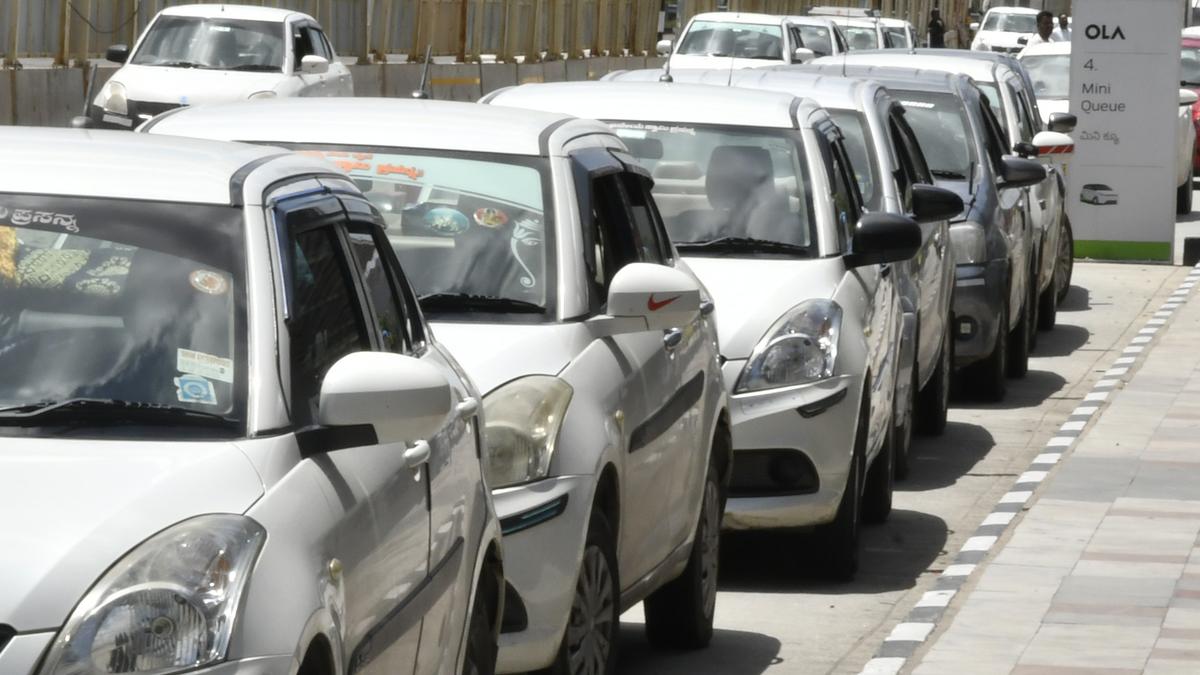
Karnataka taxi drivers demand amenities in hotels and resorts
The Hindu
Cab drivers in Karnataka face unsafe conditions while on duty, prompting demands for accommodation guidelines similar to Tamil Nadu.
:
“I sleep in my car for ten days straight while on duty because no rooms are provided in hotels and resorts for drivers,” said Prasanth Babu, a cab driver from Bengaluru.
This is not an isolated case. Most taxi drivers on outstation trips spend their nights inside the car since hotels, resorts, and homestays do not offer them accommodation.
“During the 15 years I have been driving, only a few passengers have been considerate to book a room for us. Most customers don’t care, and we end up sleeping in the car. Hotels and resorts don’t even provide separate toilets for us, so we have to use public toilets,” Mr. Babu added.
Recently, in Madikeri, Kodagu, a large tree fell on a taxi parked at a prominent resort. Though the driver was inside the car, fortunately, he was unharmed. Following this incident, cab drivers at the resort protested against the resort’s poor treatment of drivers.
Prithvi Raj, a cab driver present at the resort, said, “We are made to park our cars in unsafe areas, despite Kodagu being known for heavy rains that can cause trees to fall at any time. The resort staff are putting our lives at risk.” He added, “The washrooms and toilets provided are in terrible condition and unusable. The area where we park the car is near the garbage, and there are mosquitoes. It’s an inhumane way of treating us.”
Given all these incidents of ill-treatment of cab drivers, the Karnataka State Travel Operators’ Association has now demanded that the government implement guidelines similar to those in Tamil Nadu, which require hotels, resorts, and homestays to provide amenities for their guests’ drivers.

“Writing, in general, is a very solitary process,” says Yauvanika Chopra, Associate Director at The New India Foundation (NIF), which, earlier this year, announced the 12th edition of its NIF Book Fellowships for research and scholarship about Indian history after Independence. While authors, in general, are built for it, it can still get very lonely, says Chopra, pointing out that the fellowship’s community support is as valuable as the monetary benefits it offers. “There is a solid community of NIF fellows, trustees, language experts, jury members, all of whom are incredibly competent,” she says. “They really help make authors feel supported from manuscript to publication, so you never feel like you’re struggling through isolation.”

Several principals of government and private schools in Delhi on Tuesday said the Directorate of Education (DoE) circular from a day earlier, directing schools to conduct classes in ‘hybrid’ mode, had caused confusion regarding day-to-day operations as they did not know how many students would return to school from Wednesday and how would teachers instruct in two modes — online and in person — at once. The DoE circular on Monday had also stated that the option to “exercise online mode of education, wherever available, shall vest with the students and their guardians”. Several schoolteachers also expressed confusion regarding the DoE order. A government schoolteacher said he was unsure of how to cope with the resumption of physical classes, given that the order directing government offices to ensure that 50% of the employees work from home is still in place. On Monday, the Commission for Air Quality Management in the National Capital Region and Adjoining Areas (CAQM) had, on the orders of the Supreme Court, directed schools in Delhi-NCR to shift classes to the hybrid mode, following which the DoE had issued the circular. The court had urged the Centre’s pollution watchdog to consider restarting physical classes due to many students missing out on the mid-day meals and lacking the necessary means to attend classes online. The CAQM had, on November 20, asked schools in Delhi-NCR to shift to the online mode of teaching.









